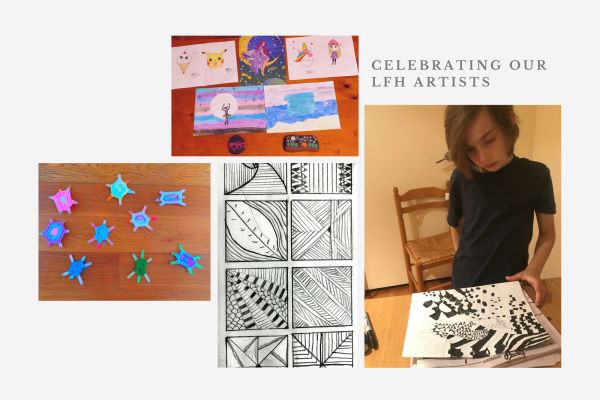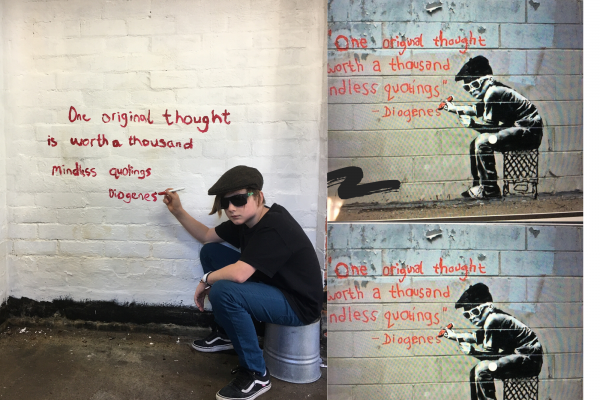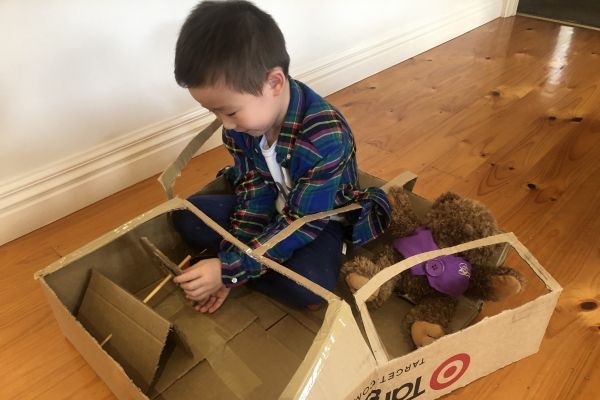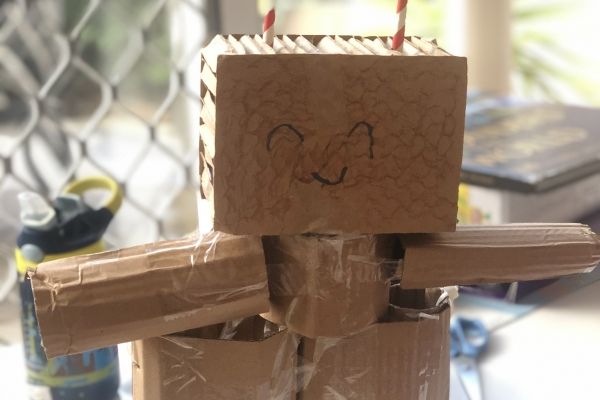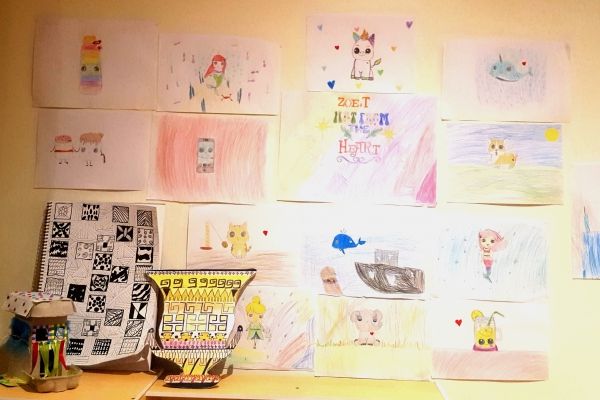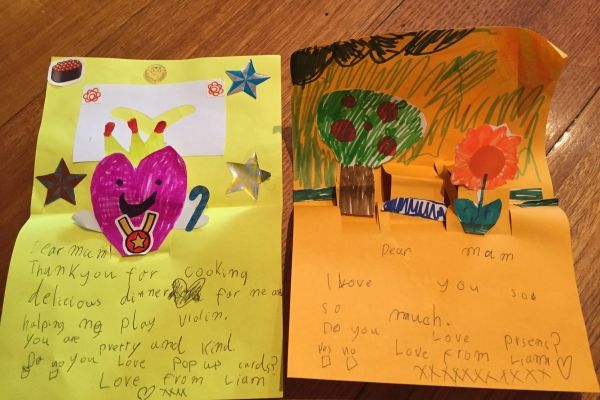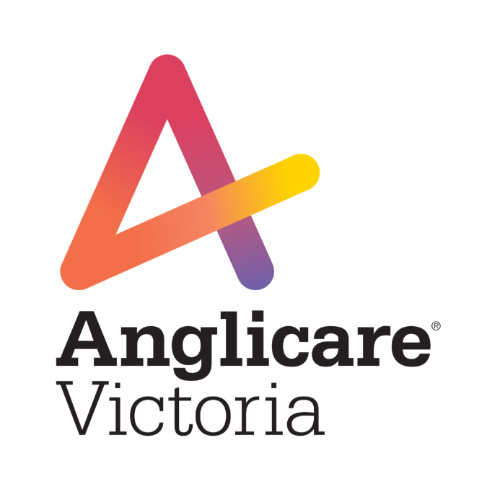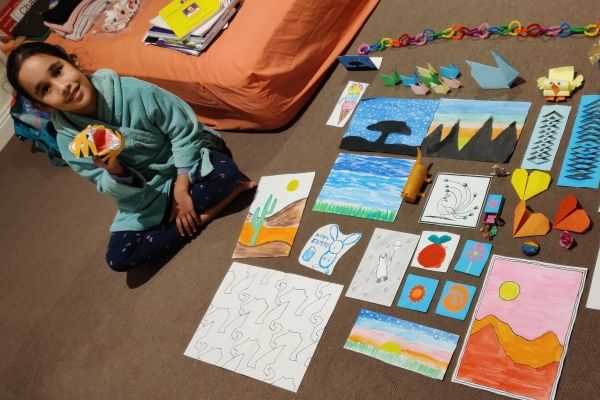Build the foundations for good health
A healthy diet, plenty of exercise and good sleep patterns are basic to good physical and mental health. Get the foundations right and you establish optimum conditions for your child to flourish even in difficult circumstances.
Eat a healthy diet
The ‘healthy body, healthy mind’ mantra that we grew up with needs to be updated to ‘healthy gut, healthy brain’. Recent research has revealed the links between a child’s gut health and good mental health. Kids who experience anxiety and depression typically have imbalances of adrenaline (which keeps the brain alert) and GABA (which calms the brain down), that can be rectified with good gut health.
A framework for healthy eating includes eating real rather than processed foods, consuming small and regular meals, starting each day with protein and complex carbs, drinking plenty of water and keeping kids away from caffeinated drinks.
Get plenty of exercise
Exercise not only promotes good mental health. It’s also a tool that kids can use to manage their mental states. Exercise and movement send endorphins through their bodies improving mood and relieving tension and stress. Exercise and movement relaxes the muscles and reduces feelings of anxiety that build up over time.
A framework for exercise includes starting the day with some movement, taking regular movement and game breaks, finishing the school day with movement that gets their limbs moving and hearts pumping.
Maintain good sleep patterns
The benefits of good sleep patterns are immense and far-reaching, impacting kids’ learning, memory and emotional stability. Sleep restores the brain to optimum conditions and rejuvenates the body, allowing hormone levels elevated during the day to return to normal. Consequently, sleep-deprived kids experience greater anxiety doing routine tasks and have a propensity for pessimistic thinking, which is associated with anxiety and depression.
A framework for good sleep patterns includes finding an optimum bedtime; creating a regular, relaxing routine, eating and exercising at the right time, creating a sleep sanctuary and getting up at regular times each day.
Add the pillars of good mental health
Mental health is complex and is impacted by many factors including a child’s social and emotional wellbeing. The following four pillars have an insulating effect on your child’s mental health, acting as circuit-breakers when life becomes difficult and complex.
Maintain social connection
As social beings we long for connection to others and a sense of belonging to groups. While time alone can be restorative, sharing experiences, thoughts and stories with others is absolutely essential to your child’s happiness and wellbeing.
A framework for social connection includes one-on-one time with family members and other loved ones, having shared family experiences to confirm a sense of belonging, having shared time and experiences with peers from school and the neighbourhood, and a connection with the broader community through shared experience, cause or goal.
Stay in the present
The human mind is restless, taking us all over the place. It can make us feel happy recalling memories of loved ones or happy times and it can also drive insecurity connecting us to events in the past or future that fill us with dread, and make us feel anxious. Kids’ wandering minds need to take a rest and settle in the present, stopping their mental chatter, giving them the chance relax. Mindfulness is an essential mental health tool that enables children to keep their minds in the present moment, allowing them to feel safe and secure.
A mindfulness framework includes regular mindfulness exercises, doing one thing at a time, using mindfulness during an anxious moment, practising self-kindness and forgiveness.
Enjoy yourself at play
The term ‘child’s play’ is demeaning to children and dismissive of the place of play in our lives. Play is absolutely critical to our happiness and wellbeing. Borrowing from the work of Dr. Brene Brown, play is defined as any activity that’s fun (therefore highly anticipated), free (that is, self-directed) and involves flow (we don’t want it to stop). Play helps kids manage anxiety and depression as it lifts their mood and is therapeutic by nature.
A play framework includes space and time for play, child-initiated activities, a mix of lone play and group activity, some social or physical risk may be involved.
Spend time in nature
Recent studies highlight what we already knew – that time spent in natural environments benefits our happiness, our sense of wellbeing and reduces stress and tension. The rejuvenating benefits of time spent in the bush or by the sea may be difficult to acquire during times of physical isolation but walks to the park, spending time under a favourite tree or even bringing some green shrubs inside have proven to be just as beneficial to children’s mental health.
A time in nature framework includes management and reduction of screen time, exposure to natural environments in the neighbourhood, bringing the outdoors inside, and spending some time each day outdoors.
Practise protective behaviours
Our daily habits contribute to our wellbeing and mental health. Some habits such as spending too much time in front of a screen may be detrimental. There are a number of behaviours, when practised continuously, build our resilience and resistance to daily difficulties. These include:
Keep foundation behaviours
Routine behaviours such as waking at the same time, having breakfast, exercising, showering and dressing get us ready for the day ahead. They underpin productivity, learning and wellbeing. Remove the structure provided by these foundation behaviours and many children and young people struggle, particularly those who are prone to anxiety and depression.
A foundation behaviour framework includes morning routines and rituals to prepare for the day, after school and evening wind down routines, and routines that prepare children for sleep.
Practise deep breathing
Recognition of the benefits of deep breathing dates back to ancient Roman and Greek times when deep belly breathing was used to rid the body of impurities. Modern science informs us that deep breathing instantly engages our capacity to relax and stay calm. When a child becomes anxious or fearful their breathing becomes shallow. Taking deep, slow breaths when they become overwhelmed by anxiety is the quickest way to return to a calm state. Deep breathing has great preventative powers helping the mind stay in a state of focus and calm.
A deep breathing framework includes practising deep breathing spontaneously throughout the day, combining deep breathing with mindfulness practice, using deep breathing to restore energy when tired, and breathing deeply during an anxious moment.
Check in on feelings
If children and young people are not tuning into their emotions they are missing a rich vein of information that will assist decision-making, learning and importantly, their wellbeing. It’s relatively easy to tune to into behaviour and our thoughts, but much harder to detect our emotions. The skill of emotionally checking in, developed by Prof. Marc Brackett from the Yale Centre for Emotional Intelligence, helps children and young people to identify how they are feeling at any given time. It requires kids to stand still, close their eyes, take some deep breaths, identify and give a name to their feeling. This simple habit of checking, once practised and learned is a wonderful life skill to acquire.
Looking after your child’s mental health may seems like a mystery at times. But there is a great deal we can do. By laying a foundation for good general health and then working at maintaining the pillars of mental health and teaching kids the protective mental health behaviours you provide them with a solid framework for maintenance of good mental health that they can take into adulthood.

